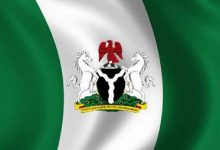5 Problems of Indigenisation in Nigeria and 3 Possible Solutions
The Nigerian Indigenisation Decree was established in the year 1972 and was a move by the Federal Government of Nigeria to end the perceived foreign domination of the economy and increase indigenous control of strategic sectors of the economy.
Simply put, the Nigerian Indigenisation Policy was a government initiative that aimed to recover control of several vital and productive sectors of the economy from alien control.
👉 Relocate to Canada Today!
Live, Study and Work in Canada. No Payment is Required! Hurry Now click here to Apply >> Immigrate to CanadaThe Policy required the foreign owners affected to put up these firms for acquisition by the indigenes, hence the name indigenisation.
Read Also: Problems and Prospects of Identity Management in Nigeria

The decree was promulgated in February 1972 and was revised in 1977, renamed as the Nigerian Enterprises Promotion Decree.
To aid the execution of the policy, the Indigenisation Decree stipulated two categories of business, where foreign control would be reduced or completely forbidden.
Schedule I
This category disclosed twenty-two sectors where foreign interest was to be completely stopped. These include rice milling, jewellery production, etc.
Quoting the Indigenisation Decree, Schedule I: ‘As from March 31, 1974, no person, other than a Nigerian citizen or association or nationals of O.A.U members, shall be owners of 22 selected enterprises in Nigeria… ‘. The decree also forbade the establishment of such exclusive businesses by foreigners, after 23 February 1972.
Schedule II
This section of the decree set forth thirty-three sectors where Nigerians were required to maintain at least 40% ownership of the firms involved. The Enterprises Promotion Decree of 1977 further increased this threshold to 60%.
The industries affected include chemical manufacture, cement manufacture, etc. The second schedule expressly forbids absolute foreign control over enterprises such as real estate agencies, construction firms and internal transportation networks.
👉 Relocate to Canada Today!
Live, Study and Work in Canada. No Payment is Required! Hurry Now click here to Apply >> Immigrate to CanadaYet, as promising as the Nigerian Indigenisation Policy is – brilliant in concept, and unique in its implementation – the basic masterplan is not progressing (never progressed) as desired.
Granted, the Indigenisation Policy was intended to bolster the economic and political autonomy of post-colonial Nigeria, but as with several other government agendas and with the passage of time, numerous unforeseen obstacles have cropped up, proving that the Indigenisation Policy may be easier said than done.
Read Also: 8 Requirements to Get International Passport in Nigeria
Problems Associated with Indigenisation:
1. Inadequately Trained Indigenous Manpower may Destabilize the Economy
The Indigenisation Policy was launched in 1972, barely twelve years from independence, at a time when the bulk of the Nigerian labour market consisted mainly of unskilled and semi-skilled manpower, and agriculture was the main economic activity.
As such, the business concerns that had been retrieved from foreign investors and capitalists, were most often than not left dormant, owing to an absence of the indigenous managerial and technical know-how required for a smooth continuity of the production process.
With the absence of the invaluable technical ability needed for the running of the indigenised businesses, many of them have since ground to a halt.
2. Sabotage
As soon as the indigenisation decree was launched, several cunning foreigners who were about being dispossessed of their businesses devised a clever strategy that would enable them to appear to have relinquished control, but in reality, they would still manage their businesses through the agency of their indigenous associates.
With the capital provided by the foreigners, their Nigerian colleagues would acquire their businesses and would, according to government regulations, continue normal business operations without attracting suspicion.
Unknown to the authorities, these indigenous business owners would continually remit massive amounts of money to the original owners. The natives would own the indigenised firms in name, while the foreigners would still retain the actual control over their businesses.
Read Also: 12 Functions of Traditional Rulers in Nigeria Community Development
3. Lack of Capital to Acquire the indigenised Firms may Halt Production
Although the Indigenisation Decree required the indigenes to acquire several stipulated industries from the control of foreigners, the policy was greatly hindered by the shortage of indigenous capital, limiting the ability of the masses to acquire control over the idigenised industries.
Many Nigerians were interested in acquiring the various business assets but were incapacitated by the lack of investment capital.
4. The incidence of Capital Outflow From the Economy
In the occasion of foreigners actually disposing of their assets, their interest in the Nigerian economy would be severely weakened and most often than not, the distraught investors quickly moved all their capital back to their nations of origin.
Considering that the firms affected by the indigenisation policy had been major players in the Nigerian economy, the massive scale of capital outflow affected the economy adversely, resulting in widespread unemployment and the collapsing of several viable sectors of the economy.
Till this day, many factories still stand vacant across the country. The government lost much money in tax revenue as many indigenized firms fared worse under indigenous control, resulting in declining foreign exchange.
5. Political Retaliation by the Affected Nations
Although the aim of indigenisation is to better the lots of the citizens, the governments of the foreigners affected may seek to revenge what it sees as an injustice against her citizens. This would cause the nations affected to launch a severely biased indigenisation program, that would target and dispossess Nigerian business owners who are operating in the various nations.
Already, nations like the United States of America have strict laws in place, that demand that any nation where American business interests are opposed unjustly, the nation in question would be denied any help whatsoever by the American government.
If the Indigenisation Policy is not diplomatically executed, it may set in motion, a tide of catastrophic events that would ruin Nigeria’s foreign relations with the affected nations.
Read Also: 10 Problems of Religion in Nigeria and Possible Solutions
Possible Solutions to the Problems Associated with Indigenisation
The Nigerian government identified the problems and challenges that were opposed to a full implementation of the Indigenisation Decree and employed several strategies to curtail them.
These include:
1. Legislation
To ensure that Nigerians didn’t collude with the foreigners to maintain ownership over the blacklisted industries, strict penalties were established by the decree, which was to be enforced against the defaulters.
Any citizen found guilty of sabotage would be required to pay a fine of N150,000 or serve a jail term of five years. The fine in question was very heavy, considering that the Naira still had much value back in the post-colonial days.
2. Provision of Technical and Managerial Training
The Federal Government of Nigeria, through the agency of the Nigerian Enterprises Promotion Board, created the Centre for Management Training, that was tasked with providing the necessary training for indigenous managers of the indigenised businesses.
Read Also: 10 Problems of Nigerian Politics and Possible Solutions
3. Provision of Capital Facilities
In order to tackle the problem of possible capital outflow, the Federal Government of Nigeria set up the Nigerian Bank for Commerce and Industry, to provide investment capital to the interested citizens, who had little or no funds to acquire the indigenised firms with.
Additionally, commercial banks were instructed to provide loans to the prospective investors, and a limit was placed on the amount of money the foreign businessmen could repatriate back to their nations of origin.


